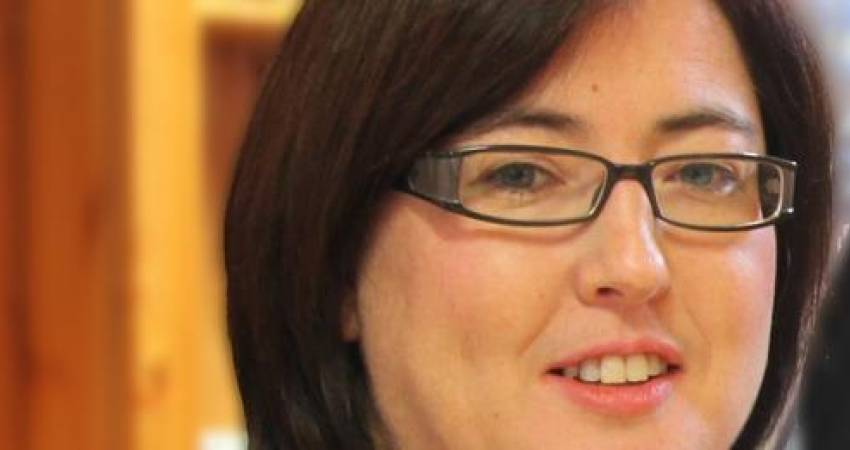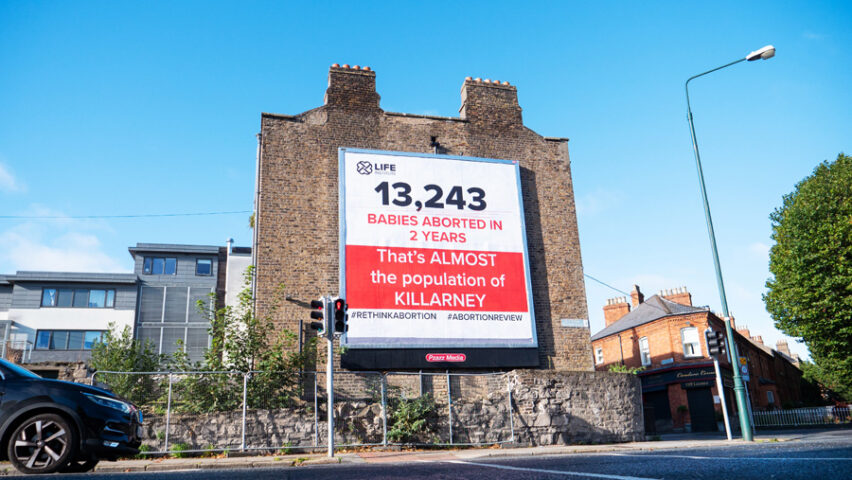
No surprise: Report produces by abortion supporters for HSE ignores inconvenient truths
As is now well known, Big Tobacco engaged in a decades-long campaign starting in the 1950s which sought to persuade the public that cigarettes were not harmful – or at least not as harmful as medical research was beginning to reveal.
A playbook developed by the CEOs of tobacco giants advised a focus on personal decision making, on positioning Big Tobacco as standing against restrictions on personal freedom, and on vilifying critics by describing them as “fascists” who wanted to deny people their rights.
It sounds familiar, doesn’t it? Abortion campaigners have copied large chucks of that playbook, and they have an additional asset that Big Tobacco found wanting: the unswerving and uncritical support of the media.
So we arrive at the position, some four years after Repeal of the 8th, where abortion supporters are pushing to extend Ireland’s already liberal abortion laws despite promises made to persuade voters that abortion would be restrictive and rare.
The government knows that the media’s default position is to unquestioningly report the demands of groups like the National Women’s Council who are taxpayer funded to the hilt and are calling for abortion on demand up to 6 months of pregnancy, and for disability abortions. (Remember how pro-lifers were shouted down and called liars when we said this would happen? Straight out of the playbook.)
So Stephen Donnelly, the Minister for Health, felt safe appointing two academics who openly campaigned for Repeal to carry out research as part of the review of the operation of the abortion act.
It’s a giddy little golden circle in Ireland when it comes to the abortion review, not so much who you know, as having the correct and approved opinions – which always, always means holding a position on abortion that is to the extreme of the public and cares not a damn for the unborn child whose life is lost.
And so we come to the research on abortion in Ireland produced by two repeal campaigners for the HSE. Both the lead researcher, Dr Catherine Conlon of TCD, and her American assistant Kate Antosik-Parsons (an art historian who is now a research fellow in social sciences) were avid abortion supporters and campaigned for repeal of the 8th. Neither woman is a medical doctor. Conlon was part of a Trinity grouping called Tarts for Repeal which sought to strip the unborn child of any rights.
In fact, in a nod to their strong personal opinions, Conlon does coyly refer in the report published today to their involvement in “abortion rights campaigns” and support for Repeal of the 8th, but dismisses any notion that this might make her an unsuitable candidate to examine unplanned pregnancy and ‘abortion care’.
She is, of course, safe in the knowledge that the lavish media attention given to the claims and conclusions in her research will never point to her pro-abortion stance or unsuitability as lead researcher. And she also knows that she will not be held to account for what she conveniently left out of her research – such as the staggering rise in the number of abortions, the horrendous case of abortion after a misdiagnosis in the National Maternity Hospital, or a review of the actual data in regard to women travelling abroad for disability abortions and women changing their mind about abortion in the three-day waiting period.
Instead Conlon, who has taxpayer funding and research assistance available to her, talks to 58 women about their abortion experiences and uses those conversations to push to liberalise the abortion laws further. No surprise there, but Stephen Donnelly will no doubt use her findings as an excuse to push for the implementation of the foregone conclusions arrived at in the report. At times, we really are a sad, pathetic little country.
It’s worth examining two of those conclusions to see the inconvenient truths ignored.
Firstly, the claim that the current abortion law is not ‘broad’ enough to ensure that all babies with severe dsiabilities can be aborted is centred around the use of stories where the baby has a foetal anomaly, with the implication that the condition should not need to be ‘fatal’ – a shift from the referendum when we were repeatedly told that abortion was needed precisely because these conditions were supposedly hopeless.
The report makes repeated use of criticism of additional testing to certify the baby has a disorder, and writes disapprovingly of these “protracted assessments” . This is breathtaking, given that the National Maternity Hospital admitted liability in the shocking case of baby Christopher whose parents were pushed towards an abortion after a misdiagnosis of Trisomy 18. Conlon’s research doesn’t bother to examine that case nor the lessons that should be learned from it: an inconvenient truth best ignored.
Neither did Conlon or her team bother to look at the data from the British Department of Health which details why women are travelling for disability abortions. That data shows that babies diagnosed with anencephaly, Trisomy 18 and Trisomy 13 are now being aborted in Ireland – the numbers travelling for these conditions as recorded up to 2018 have collapsed.
Women are instead travelling to abort babies with Down Syndrome – a shocking rise in mentions in the British report with the total almost quadrupling – and with spina bifida, and with treatable conditions such as cystic hygromas.
If Conlon and the NWCI want to see babies with Down Syndrome aborted then at least have the honesty to admit it. But they know the public would oppose that so they’ll keep using euphemisms and ignoring the data and the horrific stories like baby Christopher’s.
Secondly, based on their conversations with 58 women, Conlon’s report advises that the three-day waiting period before a woman has an abortion should be scrapped.
They make no reference to data obtained by Carol Nolan TD and Peadar Tóibín TD which showed that between 800 and 1400 women likely changed their mind and did not proceed with an abortion in the three-day wait
Figures released in response to a parliamentary question from Carol Nolan suggest that, in 2020 alone, almost 20% of women who attended GPs and clinics seeking an abortion subsequently changed their mind and did not go ahead with the procedure.
Nolan asked the Minister for Health for information regarding “the number of initial consultations for the termination of pregnancy services that were provided by general practitioners, family planning clinics and women’s health clinics in 2020”.
The HSE responded that “In 2020, there were 8,057 initial consultations for Termination of Pregnancy services.” Contrasting that information with data from the Department of Health which revealed that 6,577 abortions were carried out in 2020, Deputy Nolan said that it seemed more than 1400 women had changed their mind and did not go ahead with an abortion.
That amounted to 18.4% – or almost one in 5 women – who did not proceed with an abortion after the initial consultation. Similarly, in 2019, 7,536 initial consultations were provided while 6,666 abortions took place, suggesting that some 870 women changed their mind during the 3 day waiting period.
Of course, Conlin had full access to this sort of data, but it seems she chose not to investigate it. Instead she trots out a line about women and decision-making and calls for a life-saving measure to be scrapped.
Another inconvenient truth to be ignored. God forbid that women might decide against abortion.
The report consists of 300 pages of a tax-payer funded attempt which turns a blind eye to the horrific outcomes of the abortion law and pushes to make the regime even more liberal. Acting on its conclusions will just lead to more abortions and more tragedies and losses.
Donnelly knows the Review will be a whitewash anyway, the media knows it too: the whole charade, including the fake news, misinformation and spin will continue, and the narrative will be undisturbed.
Except, and it’s becoming harder and harder to keep a lid on the horrific outcomes of the law, there comes a time when the public starts to ask questions. Such as: why have our abortion rates gone through the roof when we were promised it would be rare? And: why the push for Down Syndrome abortion when we were told it wouldn’t happen?
The tobacco industry was also adept at producing their own research which they used to spin their own narrative. But the inconvenient truth can only be kept hidden for so long. As the body count rises, that will also happen in regard to abortion in Ireland.

This piece was first published on Gript.
Featured
- Abortion coercion has arrived in Ireland – the NWC are silent
- Review of at-home abortions 'needed after coercion case'
- French Govt to remind 29-year-olds of biological clock
- Huge factor in decline in primary school numbers ignored
- Germany Denies Promoting Abortion Abroad—While Funding Pro-Abortion NGOs
- Govt don’t oppose Coppinger abortion bill at 1st stage
- March for Life: Vance, the White House, and a Divided Pro-Life Movement
- Paris’ Annual March for Life Puts Euthanasia in the Spotlight
- Britain’s seemingly limitless abortion rate
- The importance of the work carried out by Every Life Counts
- Puerto Rico officially recognizes unborn children as ‘natural persons’
- Assisted suicide laws stalled by “complex” legal issues
- Yes, that hideous celebration of 300 abortions is real
- White Crosses Memorial: Dungarvan once again pays its respects to our aborted babies
- Josiah: Abortion Survivor
- Rally for Life 2025
You can make a difference.
DONATE TODAY